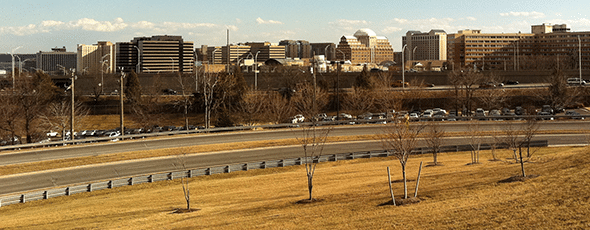Public Works Jobs: A Career in Government
A career in public works in government can be rewarding by providing a service to citizens. If you like to build and see tangible projects from start to finish, public works may be in your future.
How do Public Works Departments maintain streets?
City government, specifically public works department, is committed to maintaining streets in a safe and useable condition and to improving the street system as much as available funds will allow. To do this, city’s public works employees patch potholes, perform preventive maintenance and, when the street deteriorates to a point where it can no longer be economically repaired, reconstruct the street.
How does Public Works Department employees provide service?
The Department of Public Works’ annual budget supplies funds for street repair and maintenance, while capital improvement programs provide money for reconstruction. Capital improvement programs can be approved by voters at bond-elections. Another method used to pay for new streets is assessment paving in which the city and citizens share the cost. The city pays for a portion of the cost in residential areas and the residents are assessed the remaining portion. New streets are built by private developers, although the city may share the cost if the city wants improvements to the builder’s plans.
Finding Government Public Works Jobs
Search for Government Public Works Jobs on GovtJobs.com today!
Frequently Asked Questions:
Q: How do I get a pothole fixed and how long will it take?
A: The city’s public works department is responsible for repairing potholes. Usually a temporary patch is applied.
Q: Why is the patch only a temporary? Why isn’t it done right the first time?
A: The City’s public works department has several reasons for applying a temporary patch. First, it is quick and it makes the road safe until a permanent repair can be scheduled. Second, some streets are in such poor condition that a permanent repair cannot be justified because the repair would be better than the remainder of the road. Third, for roads in good shape other than an occasional pothole, a delay until a permanent repair can be made may allow water to reach the base and cause a major problem.
Q: What is the difference between a “temporary repair” and a “permanent repair”?
A: A temporary repair consists of cleaning out the hole, shoveling a cold asphalt mixture into the hole and compacting the mixture by driving over it with a vehicle, usually a dump truck A permanent repair involves squaring the edges of the hole with a jackhammer, removing any deteriorated material,cleaning the hole, swabbing or spraying liquid asphalt on the surface of the hole, placing a hot asphalt mixture into the hole, compacting the mixture with a steel-wheeled roller and sealing the edges with liquid asphalt.
Q: Why has the city dumped tar and loose gravel on my street?
A: Asphalt contains various oils and resins. It begins to lose those oils and resins after years of exposure to rain,wind and sunlight. When that happens, asphalt becomes brittle and cracks begin to develop. Also, depending on the climate soils can expand and contract during various seasons which causes more cracks.All cracks allow water to penetrate pavement and reach the base, the street’s foundation, causing the street to fail. Liquid asphalt and gravel is used to “seal coat” the street. This replenishes the lost oils and resins and seals the cracks.Seal coating is not only the most cost-beneficial method currently available, it also extends the life of a street for many years.
Q: My street is being rebuilt. Why is it taking so long?
A: City streets are normally rebuilt by private contractors hired by the city. After the plans have been completed, but before the street contractor begins work, utility companies are asked to replace lines that are in the way or are in less than good condition. The street contractor is usually prohibited from beginning until all of the utility work has been completed. The street contractor is allowed a specific number of days to complete the project. That number of days is set by the city before bidding occurs, based on what is a reasonable time to complete that particular project. The city works with the contractor during construction to urge completion on schedule. If the contractor fails to complete the work on time, penalties are often assessed against the contractor. Penalties are based on the size of the project and can be assessed for each working day that the project runs over.
Q: Why is the street poorly repaired when it is dug up due to a water or sewer problems?
A: When the city’s public works department digs up the street to repair a leak or to make a new water or sewer tap, they refill the hole with washed rock that compacts very well and then put a temporary cold asphalt patch over the rock to keep it in place and to allow the street to be reopened quickly. A permanent repair is made as soon as possible.






